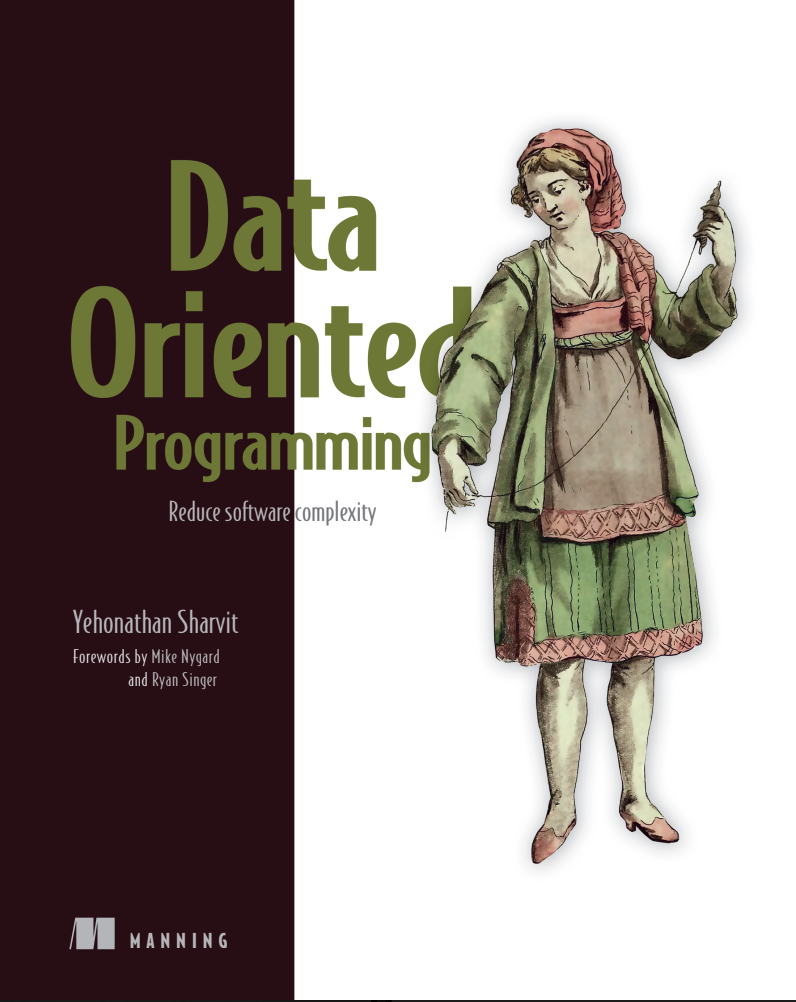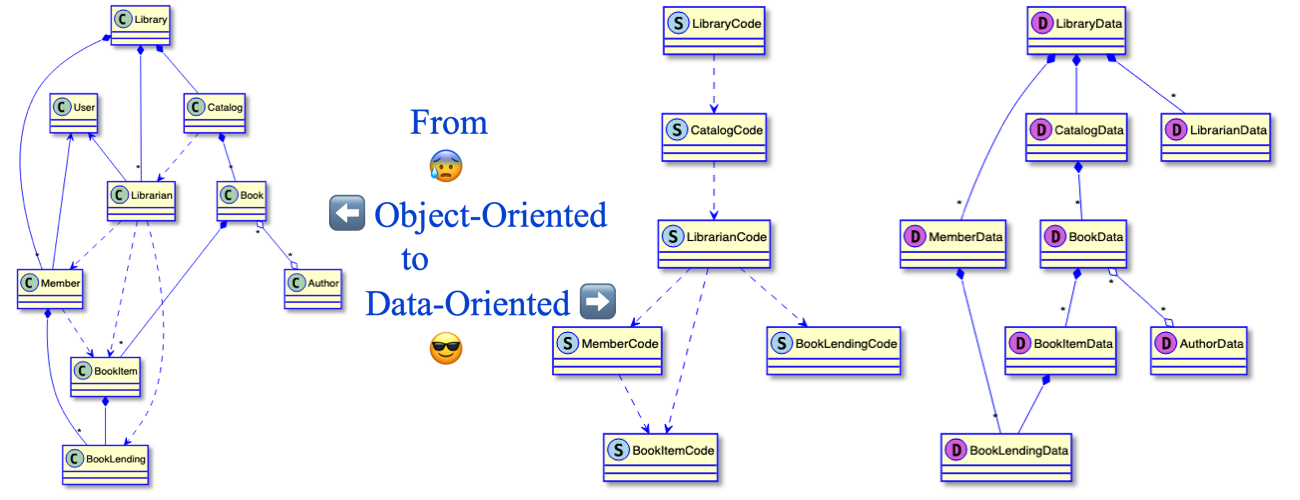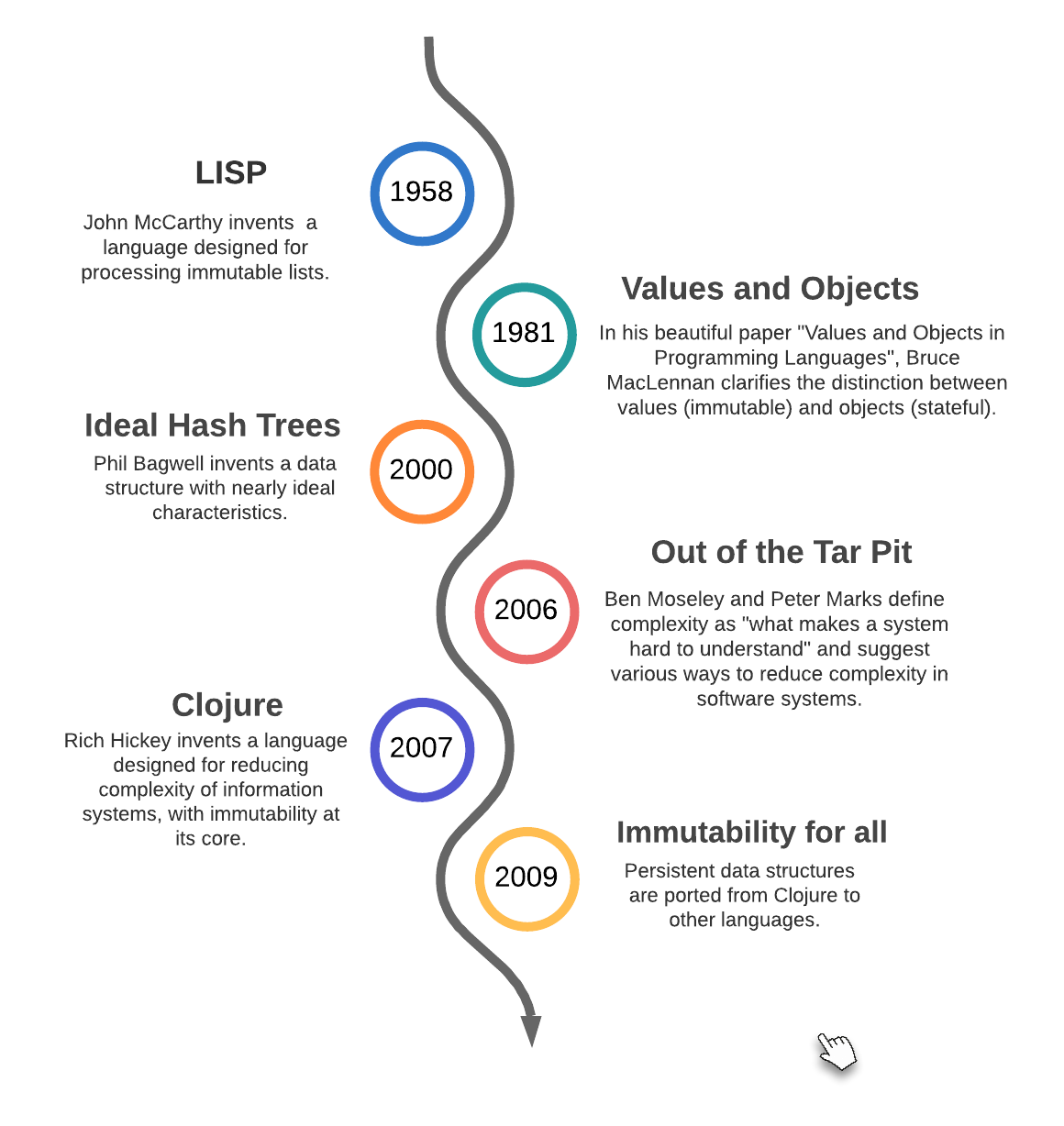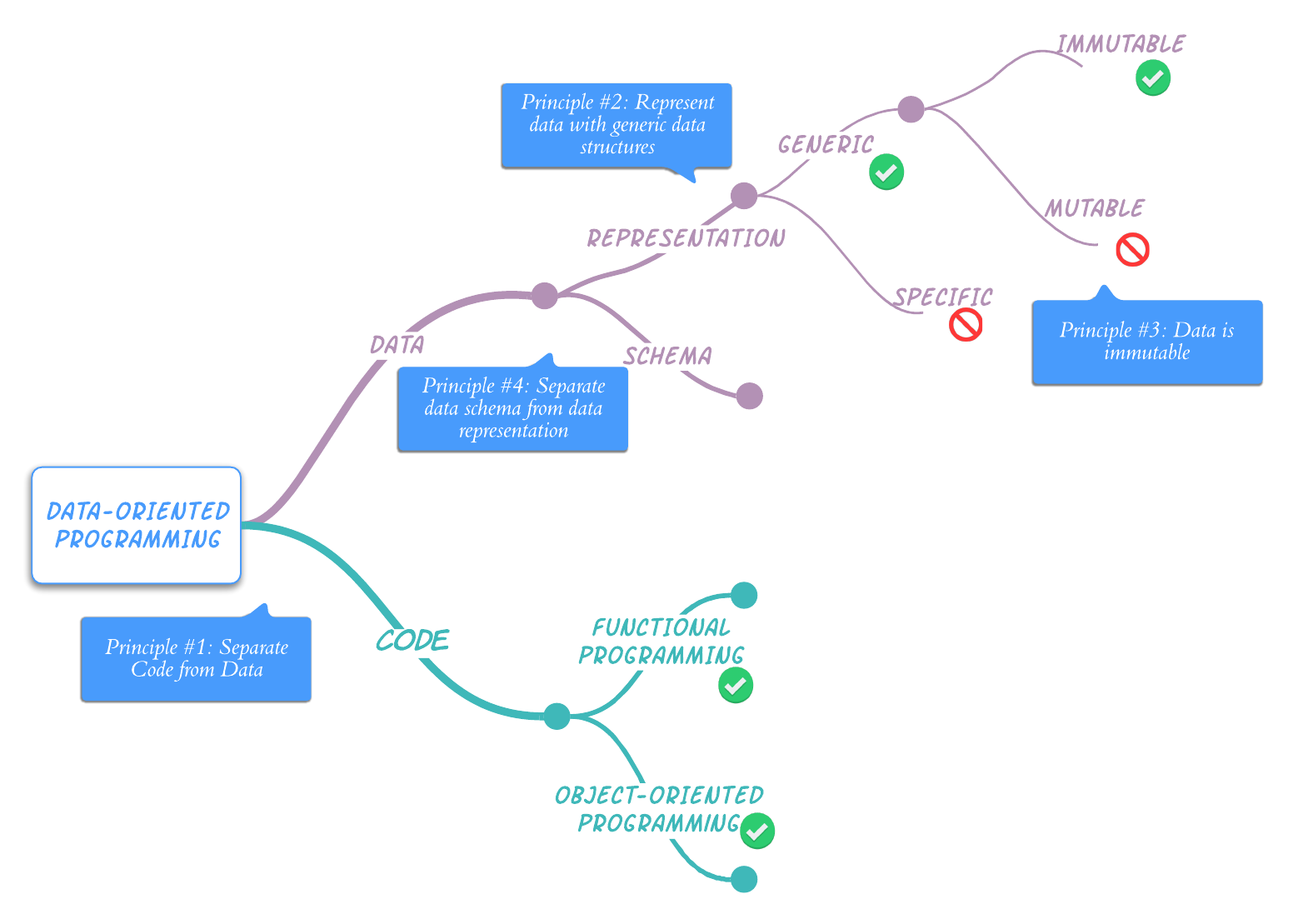Data-Oriented programming
Reducing 🕸complexity 🕸 of information systems
Yehonathan Sharvit viebel
Data-Oriented programming
Reducing 🕸complexity 🕸 of information systems
Yehonathan Sharvit viebel
💻 Developer since 2001 (Clojure since 2012)
📖 Author of Data-Oriented programming
📝 Blogger at blog.klipse.tech
🧙 Clojure wizard at Cycognito
🎁️ Maintainer of Klipse

⚙️Computational complexity
The amount of machine resources (e.g. CPU, memory) required to run a program.
😰 System Complexity
The amount of brain resources required to understand a system.
Our goal is to reduce system complexity.
"Programs must be written for people to read, and only incidentally for machines to execute" (SICP, 1986)
Systems that manipulate information in various ways.
Examples of information systems:
Web services that fetch data from the database and serves it as JSON
Web workers that listen to events and enrich them with data from multiple data sources (Data pipeline, ETL)
Front end applications that manage an application state
Treat data as a value
Separate code from data
Represent data with generic data structures
Do not mutate data
Separate data schema from data representation

🕸️Sources of complexity
Nodes with many edges
Many kinds of arrows
Association
Composition
Inheritance
Usage
class Book {
constructor(String title, int publicationYear) {
this.title = title;
this.publicationYear = publicationYear;
}
}public record Book (String title,
int publicationYear) {}function createBook(title, publicationYear) {
return {
"title": title,
"publicationYear": publicationYear
};
}class BookBusinessLogic {
static bookInfo(Book book) {
return book.title +
" was published in: "
+ book.publicationYear;
}
}function bookInfo(Book book) {
return book.title +
" was published in: "
+ book.publicationYear;
}
| Functions receive data they manipulate as an explicit argument |

☕What makes this system less complex?
Separation of concerns
Code diagram constraints
Stateless (static)
Only usage relation
Data diagram constraints
Only association and composition
var watchmenBook = new Map([
["title", "Watchmen"],
["publicationYear", 1986]
]);var watchmenBook = {
"title": "Watchmen",
"publicationYear": 1986
};👎 👎 👎
👍 👍 👍
☕What makes this system less complex?
Weak dependency between code and data
Loose coupling between components
Flexible data model
Generic data manipulation functions

Visualize the whole system data
Display data on console
Serialization for free
Generic data manipulation functions (sortBy, groupBy, select…)
Reflection for free
Information path (e.g. ["catalog", "authorsById", "alan-moore", "name"])

Values never change!
Inherently Thread-safe
No side-effects

What about performance?
Should I clone?
Should I copy on write?
Should I use special data structures?
Update the value associated with
["catalog", "booksByIsbn", "watchmen", "publicationYear"]
to 1986.
Update the value associated with
["catalog", "booksByIsbn", "watchmen", "publicationYear"]
to 1986.
💸 Most of the nodes are shared!
☕When data is immutable, it is safe to share it!
JavaScript
Naive structural sharing with: Lodash, Ramda, Immer
EcmaScript Proposal for record and tuple
Java
@value annotation from Project Lombok
Records (since Java 14)
| Language | Library |
|---|---|
JavaScript | Immutable.js |
Java | Paguro |
Go | Peds |
Clojure | provided by the language |
C# | FSharpx.Collections |
Python | Pyrsistent |
Ruby | Hamster |
function bookInfo(book) {
return book.title +
" was published in: "
+ book.publicationYear;
}var invalidBook = new Map([
["theTitle", "Watchmen"],
["publicationYear", 1986]
]);bookInfo(invalidBook); was published in: 1986{
"type": "object",
"required": ["title", "publicationYear"],
"properties": {
"title": {"type": "string"},
"publicationYear": {
"type": "integer",
"minimum": 1455,
"maximum": 2022
}
}
}var ajv = new Ajv();
var bookSchema = parseJSONFile("book-schema.json");function bookInfo(book) {
if(!ajv.validate(bookSchema, book)) {
throw "bookInfo called with invalid args: " +
ajv.errorsText(ajv.errors);
}
return book.title +
" was published in: " + book.publicationYear;
}var invalidBook = JSON.parse(
'{"theTitle":"Watchmen","publicationYear":1986}');bookInfo(invalidBook);bookInfo called with invalid args:
data should have required property 'title'| Language | Library | URL |
|---|---|---|
JavaScript | Ajv | |
Java | Snow | |
C# | JSON.net Schema | |
Python | jschon | |
Ruby | JSONSchemer |


